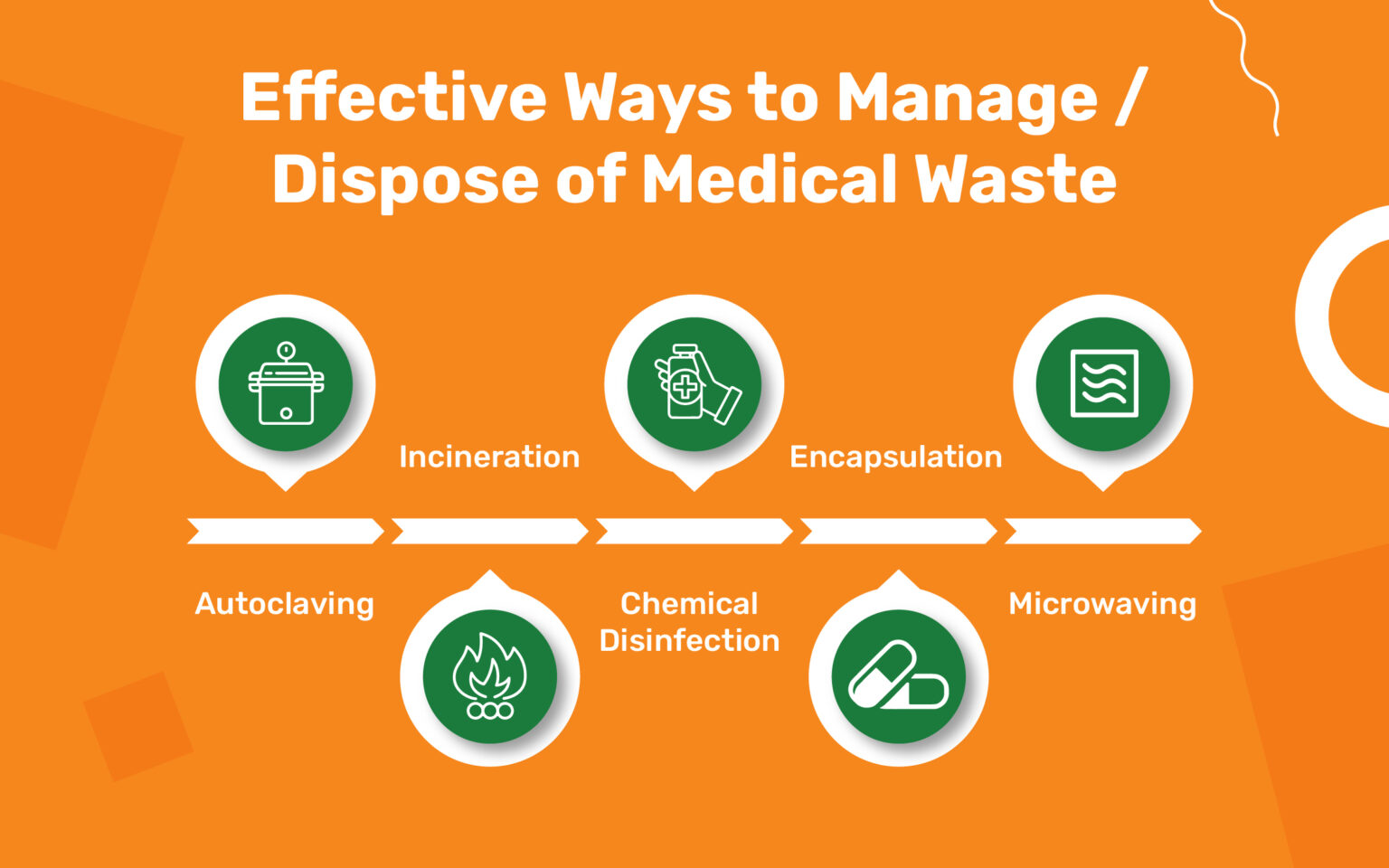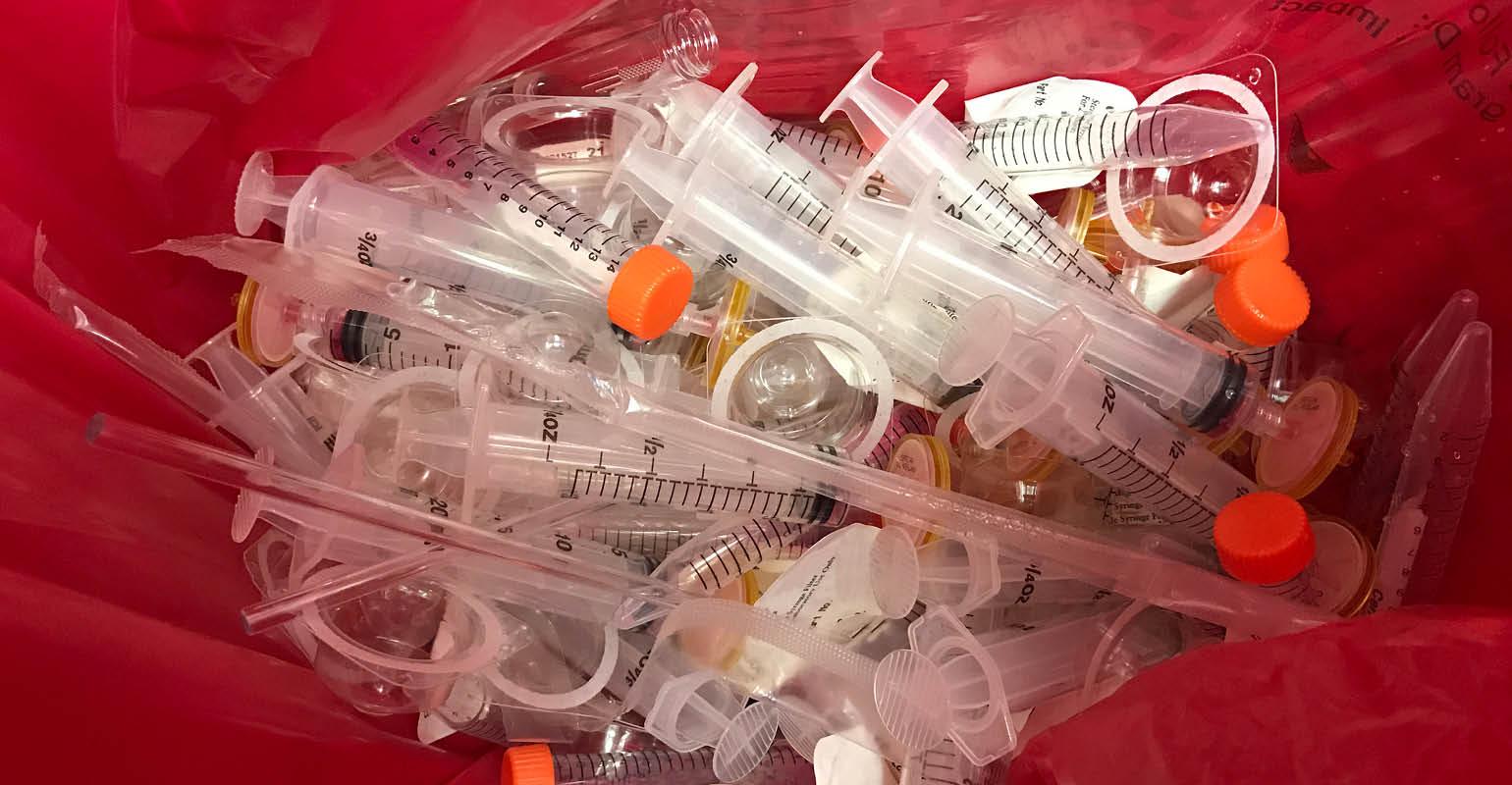Medical Waste Removal Excellence: Elevating Safety And Security Criteria in Your Center
Keep Ahead of Regulations: Expert Recommendations on Medical Garbage Disposal
In a globe where the health care industry is constantly advancing, it is necessary for clinical facilities to remain ahead of regulations when it comes to the correct disposal of medical waste. From recognizing the various categories of clinical waste to executing the right collection and partition techniques, this conversation will provide workable suggestions and valuable understandings to help centers stay in advance of guidelines in the ever-changing landscape of medical waste disposal.
Recognizing Clinical Waste Categories
Recognizing clinical waste categories is vital for correct disposal and monitoring in healthcare centers. Clinical waste refers to any kind of waste generated by health care tasks that may posture a risk to public wellness or the environment. It is important to classify medical waste precisely to guarantee its safe handling, therapy, transport, and disposal.
There are a number of groups of clinical waste that healthcare facilities require to be acquainted with. The most common classifications consist of transmittable waste, pathological waste, sharps waste, pharmaceutical waste, and chemical waste. Each category has particular guidelines and guidelines for its correct management and disposal.
Pathological waste refers to human cells, body organs, or body components that need special handling and disposal. Pharmaceutical waste comprises expired, extra, or infected medicines that require cautious handling and disposal.
Staying Up-To-Date With Regulatory Changes
Remaining existing with regulative modifications is critical for medical care centers to make sure compliance and proper monitoring of clinical waste disposal. medical waste removal. With laws frequently progressing, it is vital for healthcare centers to stay up-to-date to stay clear of charges, fines, and possible damage to the environment and public wellness
To stay in advance of regulative changes, medical care facilities should develop a system for monitoring and monitoring updates. This can be done by signing up for regulatory e-newsletters, attending workshops and conferences, and proactively getting involved in market organizations. Furthermore, centers ought to mark a team member or team in charge of staying educated and disseminating details to relevant stakeholders.
Routine interaction with regulatory firms is also crucial. Medical care facilities must establish connections with neighborhood, state, and government companies to guarantee they know any type of adjustments in regulations that might influence their waste management methods. This can be done via routine meetings, participation in public remark durations, and proactive interaction with governing agencies.
Moreover, healthcare centers should take into consideration partnering with waste management firms that focus on medical garbage disposal (medical waste disposal services with WasteX). These companies are typically skilled in the most recent policies and can give assistance and assistance to make certain compliance
Carrying Out Correct Collection and Partition Approaches
To effectively handle medical garbage disposal, health care centers need to develop appropriate collection and partition techniques according to regulative standards. Carrying out these approaches guarantees the safe handling and disposal of potentially hazardous products, shields the setting, and decreases the threat of injuries and infections to medical care employees and the public.
Correct collection and partition techniques include using designated containers and labeling systems. Medical care centers must supply clearly labeled containers for various kinds of medical waste, such as sharps, infectious waste, pharmaceutical waste, and non-hazardous waste. These containers should be color-coded and plainly significant to prevent confusion and advertise simple identification.
Additionally, medical care facilities ought to educate their personnel on the appropriate procedures for accumulating and segregating clinical waste. This consists of informing them on the different kinds of waste, the proper containers to use, and the importance of adhering to laws and guidelines. Normal training sessions and refresher course courses need to be carried out to ensure that personnel members continue to be updated on best methods.
Additionally, medical care facilities need to establish a system for normal collection and disposal of medical waste. This might involve partnering with accredited waste management business that specialize in medical garbage disposal. These companies will certainly ensure that the gathered waste is carried and dealt with in conformity with regulatory demands.
Picking the Right Disposal Methods

Incineration is among one of the most usual and reliable approaches for dealing with click here for info specific types of medical waste, such as pathological waste and sharps. It includes the regulated burning of waste at heats, lowering it to ash. Incineration can release damaging contaminants into the air and contribute to air contamination.

Chemical therapy entails the usage of chemicals to neutralize the waste and disinfect. Microwave treatment uses microwave energy to heat and sanitize the waste.
Making Sure Conformity With Paperwork and Training
After meticulously taking into consideration the ideal disposal approaches for clinical waste, medical care centers have to make certain conformity with guidelines and lessen ecological effect by applying reliable paperwork and training procedures. This step is essential in maintaining a safe and sustainable setting for both health care workers and the general public.

Health care employees that manage clinical waste must get proper training on waste partition, taking care of, and disposal treatments. By giving thorough training, medical care centers can equip their personnel to make educated decisions and reduce the risk you could try here of improper waste disposal.
Conclusion
In verdict, remaining in advance of guidelines in medical waste disposal is essential for healthcare facilities. medical waste removal services. Comprehending the different categories of clinical waste, staying updated with governing changes, executing proper collection and partition techniques, choosing the appropriate disposal approaches, and making sure compliance through documents and training are all necessary steps. By adhering to these standards, healthcare companies can successfully dispose and manage of clinical waste in a accountable and secure way
From understanding the various classifications of clinical waste to implementing the best collection and segregation approaches, this conversation will give workable tips and useful insights to assist centers stay in advance of regulations in the ever-changing landscape of clinical waste disposal. - medical waste disposal services with WasteX
The most common classifications include contagious waste, pathological waste, sharps waste, pharmaceutical waste, and chemical waste. Medical care centers need to provide clearly labeled containers for different types of medical waste, such as sharps, contagious waste, pharmaceutical waste, and non-hazardous waste. Health care facilities must develop a detailed system to videotape and track all facets of clinical waste disposal, including types of waste created, quantities, and disposal methods used. Healthcare workers who deal with medical waste should receive appropriate training on waste segregation, handling, and disposal procedures.